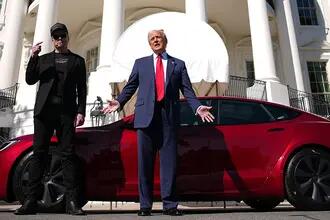
Photo Credit: designnatures-iStock-Thinkstock-skyscrapers
The fiscal cliff: overrated, underrated, or just plain irrelevant?
By Farrokh Langdana, Director, Executive MBA Program & Professor of Finance and Economics
Faculty Blogs: business.rutgers.edu/langdanamacro
As we’ve all heard by now, the Fiscal Cliff is a combination of tax hikes and spending cuts that will automatically go into effect on January 1, 2013. The magnitude of this mix of contractionary demand-side policy is about 4-5 % of GDP. (Picture an aggregate demand curve being slammed to the left, causing deflation and recession.)
So how serious is this?
Any tax increase at a time like this, when consumer and producer confidence is fragile, is a very unwelcome proposition. Japan comes to mind—a confidence killing tax hike in the late 1990s, enacted in an atmosphere of macroeconomic vulnerability, reduced Japan to subpar macroeconomic growth. Now having said this, please note that the market here in the US has already factored in the fiscal cliff. Investor confidence is dead, and companies are simply not indulging in capital investment. The adage, “Capital is a coward” is certainly true at this time when uncertainty of future tax increases and even more government regulation swirls in the macroeconomic gloom.
Do you think that we will actually fall off this Fiscal Cliff on Jan 1?
Personally, I think that a compromise will be forthcoming in the waning hours of 2012. There will be drama, late night sessions, but there will be a compromise – at the very least, a push-back of the cliff to mid-2013. The spending cuts—the Sequester—may be automatic, but the tax increases can be easily deferred by Treasury. No President wants to go down in history as knowingly leading his country back into a recession in pursuit of “taxing the rich.” Perhaps a relaxation of the definition of income considered as “high,” and perhaps the sacrifice of some entitlements by the Democrats will see us through to a deal.
Then all of this fuss? Nothing worries you?
On the contrary, I am very worried. In my opinion the Fiscal Cliff, whether in January 2013, or mid-2013, is just the opening act. It is the warm-up band before the main event which is characterized by two very dark clouds on the horizon, namely, the looming nonsustainable US Federal budget deficits and the unimaginable amount of money creation (monetization) by Ben Bernanke’s Fed.
Details please?
Were you aware that 77% of the US debt issued in 2011 was bought by the Fed? One in six dollars of debt issued from the beginning of time to the present is held by the Fed. This is monetization of unprecedented magnitude; greater even than at any point in our history, including the end of WWII. Ben Bernanke’s Fed has been essentially printing money in insane fashion by first buying trillions of toxic debt in the early years of the subprime crisis and saddling the US taxpayer with this rotten pile of collateralized mortgage obligations, and then allowing Treasury to simply print its way out of its spending rampage. The firewall that is supposed to exist between the entity responsible for spending (the Treasury) and the entity responsible for money creation (the Fed), has been thoroughly compromised.
But how can the Fed print money with impunity? Isn’t money growth backed by something like gold?
Nothing backs the US currency since August 15, 1971 when Nixon “closed the gold window.” We essentially have a “fiat currency” today, which is money not backed by gold or anything else. Interestingly, and paradoxically, our Monetary Policy actually had a good run from 1971 to 2007. To the surprise of the skeptics, the US Fed acted with great restraint and became the paragon of monetary rectitude all over the world, during this period. All that “backed” our monetary policy was our reputation and our credibility, and the dollar became king in spite of no gold backing. Then, with the subprime crisis that began in 2008, and the Fed throwing monetary restraint to the winds and buying up all the toxic assets and presenting them to the taxpayers, the golden era of the Fed came to an end (pun intended).
So once again, is the Fiscal Cliff serious, over-rated or just plain irrelevant?
The Fiscal Cliff is indeed a serious matter, it is not over-rated. In the event of no compromise, the damage to investor and consumer confidence will be lasting, unemployment will remain high, and output may contract. But again, the Fiscal Cliff is only the opening act. The main event will be with us long after the Fiscal Cliff drama has come and gone. If the humongous increase in liquidity, a la the "Quantitative Easing" of the Fed, and the inexorable increases in government spending are not addressed soon, then we will get into some serious long-term trouble. In this case, the Fiscal Cliff will simply be a rumble of early thunder presaging the impending macroeconomic storm.
AGGREGATE DEMAND CURVE BEING SLAMMED TO THE LEFT, CAUSING DEFLATION AND RECESSION. P = PRICE LEVEL, GDP = GROSS DOMESTIC PRODUCT, AD = AGGREGATE DEMAND. TOTAL SPENDING IN THE ECONOMY DECREASES AT EVERY PRICE LEVEL. IN RESPONSE TO THE FALL IN DEMAND, SOME FIRMS LOWER PRICES BUT OTHERS REDUCE OUTPUT AND EMPLOYMENT.
So what should the President do?
- He should insist that the Fed abandon its reckless monetization of over 75% of the nation’s debt.
- The Fed should adopt a tight-money Volckerian rule—heck, the President should bring back Paul Volcker to the Fed.
- The President should not make the mistake of raising taxes at such a vulnerable time—this mistake was made in the Great Depression and again in the 1950s, with terrible consequences.
- Federal taxes should be indexed to real income and not nominal income – $250,000 in NJ is not nearly the same thing as $250,000 in Alabama in terms of purchasing power; it is ludicrous to have residents of both states paying the same tax rates for the same nominal income.
- He should give Keynesian macroeconomics a rest. Keynesian stimuli, while necessary in the wake of 9/11 and then the housing crisis, have rapidly diminishing marginal returns. The spending has become ridiculous; for example, the Federal government has 46 separate job training programs. A recently added 47th program on Green Jobs was deemed a waste of money by none other than the Department of Labor’s Inspector General, who asked that it be shut down.
- The President should start telling Mainstreet America that unless the phenomenal burden of new government regulation is dismantled, job growth will remain dead in the water; demanders of labor (employers) will not come to the table.
- He has to openly acknowledge that maybe the pendulum regarding the anti-business rhetoric has gone too far. He needs to address America as Americans and not promote America as two classes in eternal conflict.
- Finally he needs to remind Americans that we have been in worse holes before, and that we have always prevailed, and will do so in the future.
He needs to cite Peggy Noonan of The Wall Street Journal, when she refers to America as “the great and fabled nation that is still this night the hope of the world.” - If he can do all this, then one day in the future, Ken Burns will be making a documentary entitled, “How America walked back from the Abyss to Regain its Place in the World”.
Farrokh Langdana is grateful to insights provided by Stephen Ball at the Financial Alumni Network (FAN) Panel Discussion on November 13, Professors Ivan Brick, Ben Sopranzetti, and his former EMBA student, Dr. Jesse Cohen. All opinions are solely his, and so are any/all errors and omissions.
Press: For all media inquiries see our Media Kit


